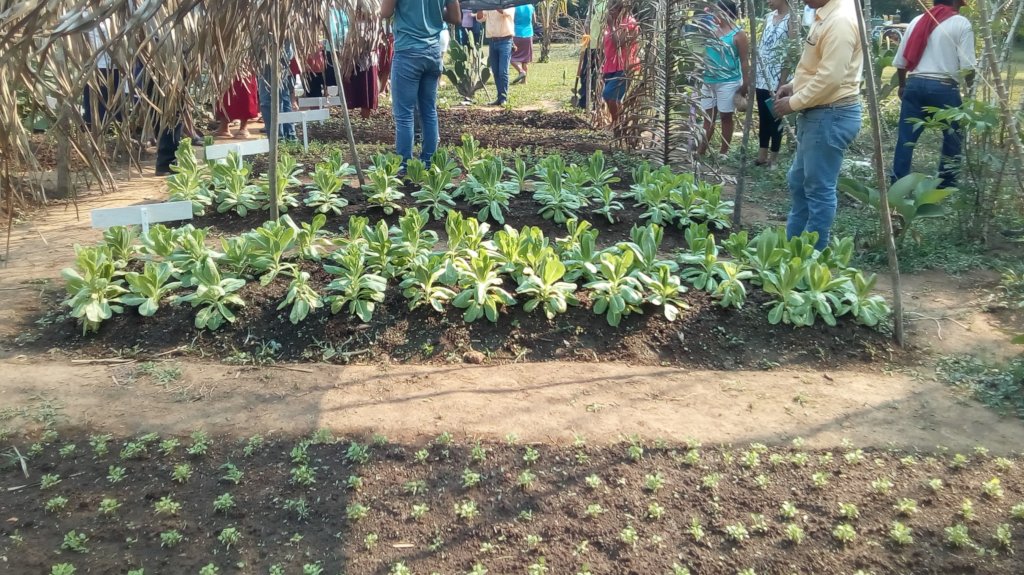By Severiana Dominguez | Project Technician, FARCO, Mexico
Dear GlobalGiving Supporter,
My name is Severiana and I work on this project providing technical assistance to the communities. I recently answered a few questions that I’d like to share with you:
1. Why are home gardens important, from your point of view?
Home gardens provide families with products that meet different needs--ranging from food, to medicine, and can even serve as a "savings account," in the case of pressing economic needs.
Highly productive gardens can also mitigate pressures on forests and jungles by significantly reducing the clearing of forests (deforestation and greenhouse gas emissions) for the cultivation of crops, vegetables, fruits, and medicinal plants. They also provide mechanisms for the conservation of biodiversity at the family level.
Home gardens promote improved family nutrition and the union of the family nucleus since the establishment and maintenance of the garden demands the active participation of all members. Home gardens constitute important geographic spaces, where the transmission of empirical and cultural knowledge from parents to children takes place.
It is important to note that the family garden is part of a broader concept, known as “solar rural” that incorporates a holistic approach to self-sufficiency, including the traditional dwelling, fruit and timber trees, chicken coops, and beehives. In addition, we have been working to provide fuel-efficient wood-burning stoves and latrines as part of a “healthy home.”
2. What species have been included in the gardens and why?
The selection of species is based on different factors (identification of needs of each family, of each locality and according to the geographical and climatic conditions) and are the result of a participatory consultation process.
The species included are divided into: a) Food: squash, onion, chives, chile, cilantro, green beans, papaya, radish, tomatillo; b) Medicinal: Basil, epazote, mint, chamomile; and c) Other uses (dyes and crafts): Achiote, acuyo, garlic, sour cane, ginger, nopal, lemongrass.
The biodiversity of the family garden also reduces pests and encourages the exchange of products between members of the community, raises the level of cooperation, and strengthens identity bonds.
3. What impact could we achieve with additional financial support to this initiative?
With additional support we can continue working with more families to improve:
Thank you for your support,
Severiana
Project reports on GlobalGiving are posted directly to globalgiving.org by Project Leaders as they are completed, generally every 3-4 months. To protect the integrity of these documents, GlobalGiving does not alter them; therefore you may find some language or formatting issues.
If you donate to this project or have donated to this project, you can receive an email when this project posts a report. You can also subscribe for reports without donating.
Support this important cause by creating a personalized fundraising page.
Start a Fundraiser